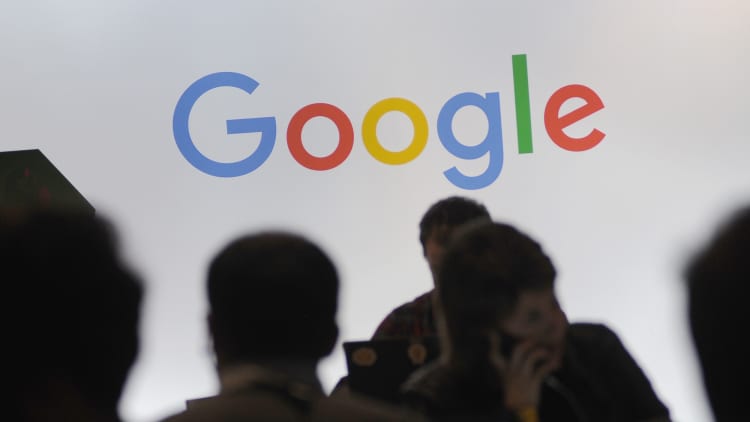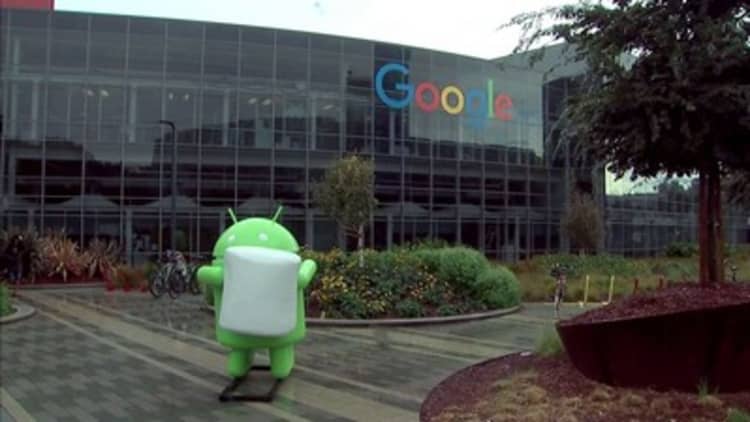
Google has been hit with a record 2.4 billion euro ($2.7 billion) fine for competition abuses related to its shopping business.
EU antitrust regulators ruled on Tuesday that the technology giant should face its largest-ever charge for a monopoly abuse case on the basis that Google manipulated its market dominance to the disadvantage of smaller competitors and European consumers.
What did Google do?
The European Commission found that, since 2008, Google had been altering its search engine results to give priority to its European comparison shopping service - initially 'Froogle' and later 'Google Shopping' - ahead of other rival shopping businesses.
By ranking Google Shopping service ahead of other competitors, Google was able to significantly increase the amount of traffic to the previously ailing service, thereby generating more clicks and revenue. Meanwhile, other companies were bumped down the list and saw traffic levels drop.

Though businesses have the right to build on their popularity, the European Commission ruled that Google had breached EU rules put in place to protect markets and shoppers.
"What Google has done is illegal under EU antitrust rules," Margrethe Vestager, the European Union's Competition Commissioner told a press conference on Tuesday.
"It has denied other companies the chance to compete on their merits and to innovate, and most importantly it has denied European consumers the benefits of competition, genuine choice, and innovation."
How did regulators find out?
Regulators were initially alerted to the possible malpractices following a number of complaints from rivals in both the U.S. and Europe.
The allegations then prompted a seven-year investigation, during which time regulators discovered that Google "systematically gave prominent placement only to its own product" and also "demoted other rival services."
Why is the fine so high?
Vestager outlined that the fine reflects the "serious and sustained" nature of Google's violation of EU antitrust rules.
EU regulatory guidelines stipulate that such fines for antitrust abuses are capped at up to 10 percent of the company's global turnover. By this measure, Google's fine could have been as much as $9 billion based on parent company Alphabet's 2016 turnover.
Though it fell short of this mark, it is well above those previously doled out by the regulator, indicating its intention to make an example of the company.
It has also been given 90 days to make the necessary changes to create equal opportunity for all competitors or it could face further fines.
The fine, as with all other antitrust fines, will go to the general EU budget, reducing next year's contributions for member states.
What does this mean for Google?
Google said on Tuesday that it "respectfully disagrees" with the allegations and it will consider appealing to the European Court of Justice to overturn the fine.
Such an appeal could well drag into 2020, according to legal associate Oliver Fairhurst of law firm Lewis Silkin.
"Google shows shopping ads, connecting our users with thousands of advertisers, large and small, in ways that are useful for both," Kent Walker, Google's senior vice president and general counsel wrote in a blog post shortly after the announcement.
"We believe the European Commission's online shopping decision underestimates the value of those kinds of fast and easy connections."
It is not yet clear what success Google will have appealing the case, however, it is currently under two further investigations by the European Commission meaning that Google's battle with the regulators is unlikely to end soon.
The ruling may also open the way for private litigants to seek compensation for damages in national courts.
Why else is Google under investigation?
The European Commission is also investigating Google's practices in regards to its Android operating system amid allegations that it is limiting the ability for alternatives to be developed.
It is also being investigated over claims that it has created 'exclusivity arrangements' which prevent advertisers from moving their online advertising to rivals.
Some commentators have argued that the number of probes into Google point to a wider crackdown on U.S. companies by EU regulators. However, Suzanne Rab, barrister at Serle Court Chambers, insisted that the investigations were not an attempt to bring down an otherwise "good company."
"The Commission's focus on Google (and Microsoft before it) has prompted the often recurring question as to whether U.S. companies are receiving rather more EU competition law scrutiny than their European rivals. However, Vestager has made clear her views that Google is a 'good company' and that it makes no difference from the EU competition law perspective whether a company is American or European," Rab told CNBC via email.



